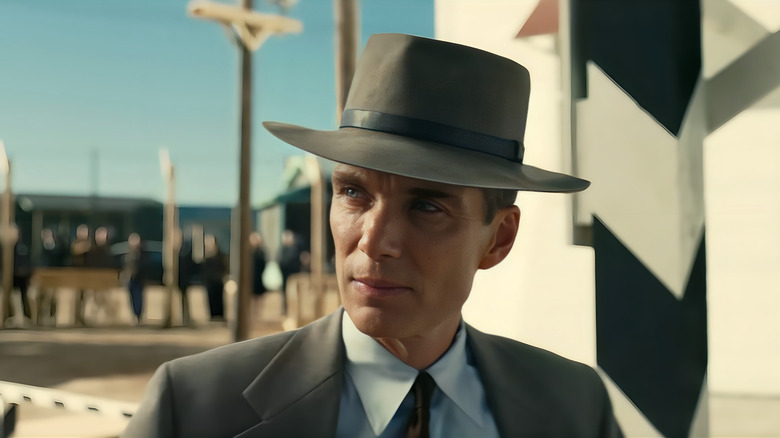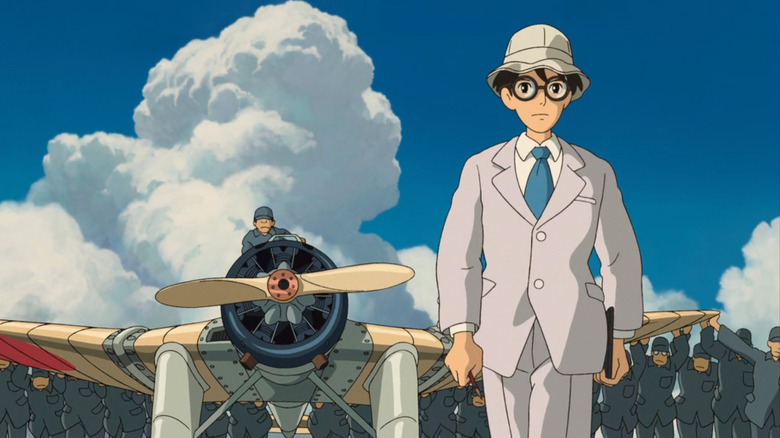Oppenheimer Fans Need To Watch This Hayao Miyazaki Film Next
Much of "Oppenheimer" is spent meditating on the simultaneous beauty and shortcomings of theory. "One can't rely on theory alone," the physicist muses repeatedly throughout Christopher Nolan's film. When "Oppenheimer" crescendos to the climactic Trinity test, testing and calculations finally give way to practice. As David Erlich put it for IndieWire, "For one extraordinary moment in time, the destroyer of worlds is perfectly suspended between theory and execution." What follows is Oppenheimer's disillusionment and, in the 1950s, his famous renunciation of nuclear weapons.
It is a scene that also plays out in Hayao Miyazaki's 2013 film, "The Wind Rises," which similarly connects scientific discovery with violence. For many "Oppenheimer" fans, "The Wind Rises" is a close cinematic analog, placing the race for weaponry –- and the brilliant minds behind it — in Japan instead of the United States. "The Wind Rises" chronicles Japanese aeronautical engineer Jiro Horikoshi's invention of the Imperial Army's Zero fighter jet. And like Oppenheimer, Horikoshi's scientific aspirations have devastating consequences.
The Wind Rises similarly chronicles an inventor's internal struggles
When "The Wind Rises" debuted in 2013, it was a departure for Hayao Miyazaki, whose films had up until that point been child-friendly fare. Conversely, "The Wind Rises" was rated PG-13 and spotlighted historically and emotionally weighty events like the great Kanto earthquake, the scourge of tuberculosis, and, of course, World War II.
That's not to say that Studio Ghibli had never engaged in matters of war. Miyazaki's "Porco Rosso" also captures the director's fascination with flight via a porcine pilot. Isao Takahata's "Grave of the Fireflies" poignantly depicts the horrors of the Second World War from the perspective of Japanese children, and Roger Ebert once praised it as one of the best war movies ever.
What connects "The Wind Rises" to "Oppenheimer," however, is the focus that both films place on the architects of their respective nations' inventions of war. Just as J. Robert Oppenheimer and Jiro Horikoshi viewed science as an artform, both men ultimately contended with the militaristic and capitalist framings in which their inventions are born, as well as the immensely violent fallout. As aircraft manufacturer Giovanni Battista Caproni intones at the end of "The Wind Rises," "Airplanes are beautiful, cursed dreams, waiting for the sky to swallow them up."

